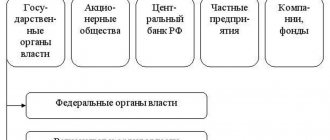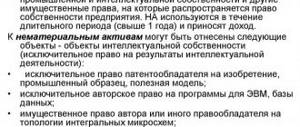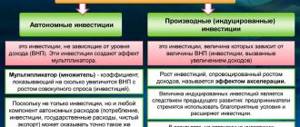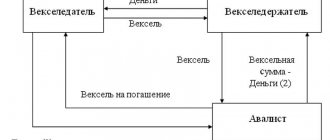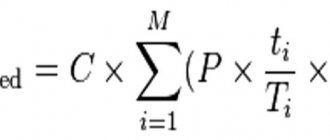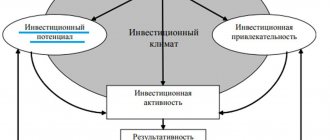What it is
Book-entry securities are rights and obligations secured by registered or order securities using computational means.
The right to them is registered in the register of owners or in a special account called “depot”. In this case, the owner is issued a document confirming that he is their owner. The term itself was introduced by American legal scholars. Since the early 1980s. A number of countries have decided to issue financial documents without paper format. For the first time in Europe, a similar form of issuing financial instruments began to be used in France. In 1984, the government of this country issued a decree on the issue of uncertificated shares and bonds. This is now the main way of transacting in the United States.
In Russia, the non-documentary type of asset circulation began to be used after the collapse of the USSR and the transition to a market economy. They became widespread during the process of restructuring enterprises into joint-stock companies. And if transactions were carried out in the previous documentary form, then the country's pulp industry simply would not be able to ensure the production of such a number of forms.
The need for a paperless trading method arose when the volume of exchange trading grew and it became difficult to process the increased number of certificates. The introduction of non-documentary financial instruments made it possible to speed up the pace of work and the number of monetary transactions. Currently, tangible documents have low liquidity.
Due to the rapid development of computer technology, the number of transactions with shares through electronic data exchange has increased: in this case, share certificates are not transferred, but are simply stored in the depository.
Regulations governing uncertificated securities
Transactions with this type of assets are regulated by the provisions of the Civil Code of the Russian Federation and the Law “On the Securities Market”. These regulations provide a legal interpretation of the terms and describe the process of emergence and transfer of obligations.
Characteristics and Traits
Uncertificated securities have the following characteristic features and distinctive features:
- rights and obligations are recorded in electronic format;
- are placed not individually, but in whole issues;
- securities of the same issue are equal in volume and maturity, and the age of purchase does not matter;
- executed at the request of the owner in a legal manner.
Execution
Expert opinion
Anna Ovchinnikova
Private investor, entrepreneur and founder of the portal fonda.pro
Ask a Question
According to the norms of the Civil Code of the Russian Federation, persons who issued securities are appointed responsible for execution. In this case, information about them is prescribed in the decision to issue the asset.
The owner or his authorized representative can demand fulfillment of obligations. Information about them must be in the account.
Transfer of rights
The change of ownership occurs according to the following algorithm:
- the former owner makes an order for the alienation of rights;
- they are debited from the owner’s account and credited to the acquirer’s account;
- the person responsible for accounting makes a special entry in the acquirer’s account;
- the deal comes into force.
In some cases, the law provides for the possibility of carrying out a transaction without the owner’s order.
Encumbrance
Civil law states that uncertificated securities can act as collateral. When they are pledged, encumbrances are imposed on them. In this case, the responsible person makes the necessary entry about the presence of restrictions in the register or on the account of the owner.
If the owner evades his obligations, the mortgagee may request through the court to make a record of the transfer of rights. And if there is more than one mortgagee, then priority is given to the earlier encumbrance.
Why you can't keep money at home
When dealing with the question of whether it is worth it and how negative it is to keep money in a bank, the owner of the funds must initially give himself an answer to the question - is it dangerous to store funds at home?
If it is a small amount that covers daily expenses, it is a different matter, it can be put in a safe, closet, piggy bank or under the pillow.
But keeping large funds at home is not only unwise, but also dangerous; they can be destroyed by inflation, a force majeure situation, or stolen by thieves. If the amount is very large, the homeowners may suffer in the process of theft.
Differences between documentary and uncertificated securities
You can see the difference between the two types of financial instruments in the table.
| Options | Uncertificated security | Documentary security |
| Main types | Stocks and bonds, depositary receipts, options | Bills of exchange, certificates of deposit, passbooks, bills of lading |
| Release form | Intangible (electronic) | Material (paper) |
| Securing rights | Through the release decision | Directly in the document itself |
| Accounting and transfer | Owner account entry | Based on assignment, delivery or endorsement (personal endorsement) |
| Production costs | Low (stored in computer memory) | High |
| Risk of loss | No | Yes |
All about central depositories
The first depository systems appeared at stock exchanges. Their main purpose was to synchronize the process of moving sets of securities and speed up settlements in specialized markets, as well as the safety of the investments of investors and other trading parties.
Today, the central securities depository is one of the professional participants in the stock markets. It deals with the storage of electronic and paper media of securities. The activity of the enterprise also consists of accounting for the movement of rights to certain shares, bonds, bills of exchange from one participant to another participant in the transaction.
For quite a long time, securities on our planet did not have the usual paper form. They are electronic documents that are stored in specially created organizations. Such enterprises are depositories. Citizens using their services are called depositors.
Each state has its own electronic document custodians. There may even be several of them in one country. The main thing is that these organizations act in accordance with certain rules and uniform laws. The following can be used as representatives of services of this kind:
- investment institutions;
- commercial banks;
- stock exchanges;
- specialized organizations.
A person far from stock exchange manipulation imagines a central depository as a banking institution with special cells that are rented out to interested citizens.
The comparison is not far from the truth. Each client of a securities depository is, by and large, the owner of a unique cell. The only difference. It stores personal, not current cash accounts. Such accounts maintain strict records of exchange-traded financial instruments.
If desired, the account holder can participate in shareholder meetings, receive interest and coupon payments based on the presence of a certain block of shares. To do this, the depositor only needs to express his desire to representatives of the depository. They, in turn, will carry out appropriate procedures with the organization that is responsible for the registry.
Advantages and Disadvantages of Owning an Uncertificated Share
The stock exchange is a source of receipt and distribution of finance. Uncertificated shares are traded here, the purchase of which accelerates the growth of companies.
In terms of release and circulation, they are very convenient:
- freely traded on the stock exchange;
- they are easy to transfer from account to account;
- they are durable and safe to store;
- do not require large production costs.
The disadvantage of this type of stock is that you cannot touch it. Therefore, they are still treated with prejudice.
There is debate among domestic lawyers about the legal regime of uncertificated shares. Some of them believe that the fixation of rights is conditional and therefore cannot be considered traditional securities.
Main responsibilities of custodians of certificates and shares
Each central depository is endowed with certain rights and responsibilities. The main functions of such an enterprise:
- support of client accounts (the organization assumes this responsibility when signing an agreement with the client);
- storage of corporate bonds, investment shares, commercial bills, shares, etc.;
- support of corporate actions;
- advising the client on any issues related to the deposit;
- performing the functions of tax agents;
- acting as an intermediary between traders and issuers, etc.
Every person who wants to buy stocks, bonds and other financial instruments must understand that his electronic purchase should be placed in a specific place.
The depository is precisely the place where almost any securities are stored. Manipulations with them are strictly controlled here. Naturally, the services of a custodian are not free.
What should central depositories not do?
Signing a deposit agreement imposes certain rights, obligations and restrictions on the executor. In accordance with the agreement, the central depository does not have the right to:
- independently manage clients' securities;
- fail to meet its obligations to collect financial instruments.
The custodian organization is fully responsible for the safety of the client deposit for a certain time. The duration of the obligations is specified in the contract. The same document indicates the amount to be paid for certain services.
Types of depositories
Today, almost every country has one central depository or several organizations of this kind. The functionality of institutions in different states is practically the same. After all, ordinary exchange organizations do not boast an excessive range of functions.
Institutions of a slightly different format or specialized (register holders) depositories have more expanded capabilities. In addition to the standard set of options, they are also given the right to control the transactions of companies, as well as determine their legality.
In addition to specialized and exchange depositories, today the classification of institutions includes:
- client;
- centralized.
A client depository is an institution that cooperates directly with holders of securities. In the Russian Federation, organizations of this kind are non-specialized and specialized.
A centralized securities depository is an organization that serves professional participants in organized stock markets. Such an institution works in tandem with exchange trading systems.
Non-specialized institutions are both depositories and intermediaries (in addition, brokers, dealers and managers). Specialized organizations are engaged in servicing a specific issuer or investment fund.
In Russia today, the most popular depository enterprises can be called United Depository SD INFINITUM, SDK Garant, Gazprombank. NGO CJSC NSD has the status of the central one in the country.
